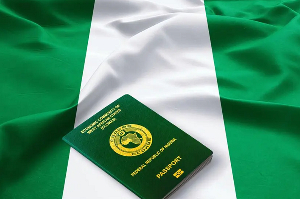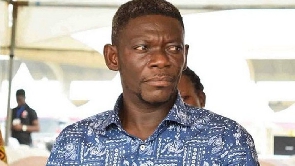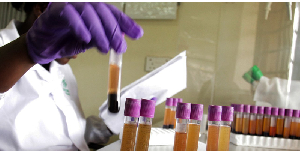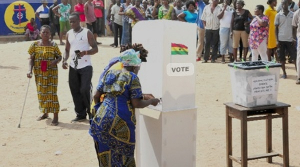- Home - News
- TWI News | TV
- Polls
- Year In Review
- News Archive
- Crime & Punishment
- Politics
- Regional
- Editorial
- Health
- Ghanaians Abroad
- Tabloid
- Africa
- Religion
- Election 2020
- Coronavirus
- News Videos | TV
- Photo Archives
- News Headlines
- Press Release
General News of Thursday, 1 June 2000
Source: null
Ghana?s Electoral Commission to enforce Political Parties Act
The Electoral Commission on Thursday said it is to embark on a nation-wide assessment of the status of political parties to bring their operations in conformity with the constitutional provisions and the Political Parties Law (Act 574).
The Act states, among others, that all political parties shall establish branches in all the regions and have organisational structures in not less than two-thirds of the districts in each region.
Mr David Adeenze Kangah, Deputy Chairman in-charge of operations, in an interview with the (GNA) in Accra said the exercise would be carried out from the constituency, district, regional and national levels.
The commission is empowered to cancel the registration of a political party on the grounds that it has refused, neglected or failed to establish or maintain national, regional and district offices.
There are 10 registered political parties in the country, but GNA has found out that some exist only on paper and do not satisfy the requirements of the law.
GNA investigations have found out that while some of the parties are growing others are shrinking and only exist in name. The district and regional branches of shrinking parties are dormant, some have changed their office locations, and postal addresses without the necessary notification to the public. In some cases their telephones are out of order.
The registered political parties are the National Democratic Congress (NDC), the New Patriotic Party (NPP), the Convention Peoples Party (CPP), the Democratic Peoples Party (DPP) and EGLE Party.
The rest are Peoples National Convention (PNC), the Great Consolidated Popular Party (GCPP), United Ghana Movement (UGM), Ghana Democratic Republican Party (GDRP), and the National Reform Party (NRP).
The law also specifies that a political party shall within six months from December 31st of each year file, with the Electoral Commission, a return indicating the state of its accounts, the source of its funds and membership dues paid.
Others include contributions or donations in cash or kind, the properties of the party, the time of acquisition and audited accounts for the year, supported by a statutory declaration by the national treasurer and the national or general secretary of the party.
Mr Kanga said without prejudice to any other penalty prescribed by the Act or any other enactment, where a political party refuses or neglects to comply with the provision or submits a declaration that is false in any material, the commission may cancel its registration.
On funding of political parties, Mr Kangah said only a Ghanaian citizen may contribute in cash or in kind to the funds, adding that there is no limitation to what a citizen may contribute.
He said any person or company who contravenes the constitutional provision on funding of political parties shall forfeit to the state any amount, whether in cash or in kind. The political party or individual in whose custody the amount is for the time being held, shall pay it to the state.
A non-citizen found guilty of contravention of the provision shall be deemed to be a prohibited immigrant and liable to deportation under the Aliens Act.
Mr Kangah, however, noted that the provisions do not preclude a government of any country or a non-governmental organisation from providing assistance in cash or in kind to the EC for the collective benefit of registered political parties.










